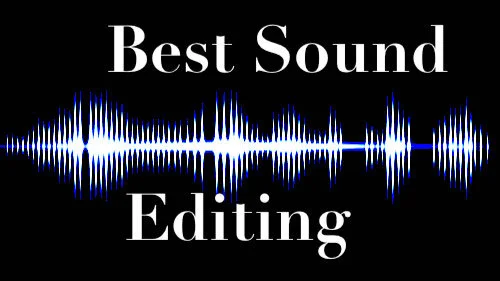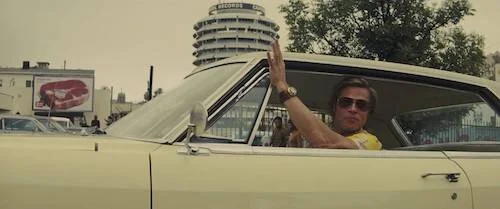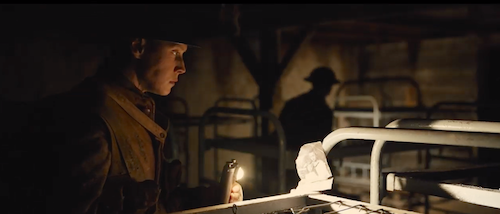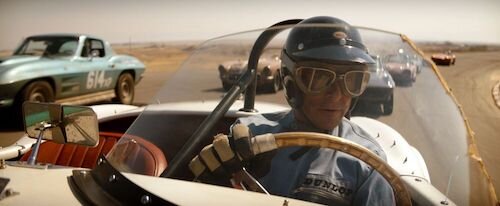Best Sound Editing: Ranking Every Oscar Nominee
Since we started this year’s rankings with paired categories, we shall continue looking at the groups that go together. So, we like to get the nominees many people write off out of the way, more-so to educate and illuminate why these categories are essential. These two categories, of course, are the Best Sound Editing and Mixing nominees. There are just some groups that change how you watch films, and these two are much more informative than many common movie goers give them credit for.
So, what’s the difference between the two nominee categories? Well, in the most basic of definitions, sound editing is the creation of sounds (including Foley artistry), while sound mixing is the blending of all of these sounds together (making every noise audible and well mixed together). We’re discussing sound editing today, so we’re focusing squarely on the sounds being made. These can be everyday noises, or the imagined sounds of the unknown.
Here are your nominees for Best Sound Editing, ranked from worst to best.
Biggest Snub: The Lighthouse
We get that The Lighthouse was heavily affected by actual weather conditions, so whatever was picked up on set was likely implemented. But, that just scratches the surface of all of the sounds going on here. The roaring of horns, the crunching of wood, and so many abstract cues to mark the breaking of one’s mind, are all delightful to endure. The Lighthouse is as much an auditory freak out as it is a visual one, and it absolutely could have had some love here.
5. Joker: Alan Robert Murray
A lot of the sounds featured are standard comic book creations, but with a realistic twist. Gun shots are more frightening than electrifying. Gut kicks can be felt by the audience. The soundscapes of Gotham all sound unfriendly. Joker’s use of sound is fantastic (wait for our Sound Mixing ranking tomorrow), but the creation of these sounds is relatively standard for a film of this nature. Nothing is particularly strong or notable on an “editing” front. If Joker didn’t have such a strong awards season push, this kind of nomination likely wouldn’t even be here.
Our review of Joker
4. Once Upon a Time in Hollywood: Wylie Stateman
Another film where the mixing is spellbinding, but the sound editing is a different story. Now, a lot of Hollywood’s sounds are picked-up artifacts (old radio spots, television advertisements), and the car sounds are much tastier than anything found in Joker. At least this nomination feels warranted to a degree. However, up against some of the crazier nominations here, Hollywood is a worthy nominee but not an outright winner. Still, love those sounds of yesteryear (wait until we gush about how they are blended together tomorrow).
Our review of Once Upon a Time in Hollywood
3. Star Wars: The Rise of Skywalker: Matthew Wood, David Acord
Look. Star Wars films are always going to be well made on a technical front, if not narratively. Part of the annoyance with The Rise of Skywalker is that it leaps from area-to-area, with battles that just will not end. Now, on a sound editing front, this is actually a good thing. Say you have to conjure up lightsaber sounds amidst so many different settings. Then, you have the noises of these settings, whether it be on a ship, or on top of a roaring sea. Then you have all of the curious alien noises, the different lasers… you know… why even bother continuing on? It’s Star Wars. You know how good it’s going to be in this department. Toss in a Wilhelm Scream, and you’re golden (Star Wars wasn’t nominated for mixing, so we can’t make this joke tomorrow).
Our review of Star Wars: The Rise of Skywalker
2. 1917: Oliver Tarney, Rachel Tate
In most other war films, 1917 would be relatively normal. Yet, because you are observing World War I all in real time in a single shot, that means certain elements have to be upped to further sell an illusion. This includes the uses of sound. You can’t just record one blip and call it a day. Any repeated noise will ruin everything. All of the gun shots, the falling structures, the exploding bombs, the coasting rivers. It all has to sound real. It all has to seem constant, and never half-assed. A gun shot in this location won’t sound the exact same in this other location five minutes later. 1917 is heavily tended to with its sound editing, and it shows.
Our review of 1917
1. Ford v Ferrari: Donald Sylvester
Out of all of the films here, Ford v Ferrari is the one that manages to surpass expectations at all costs. I’m actually convinced the sound department is one major reason why this film even garnered enough votes for its Best Picture spot. One viewing is all you need for this film, because of its basic, cookie cutter story. But, it’ll be tempting to watch this film again. Every time you’re watching a race, or you’re actually out on the track, you’re in audible heaven. The revving engines dig into your soul. The squealing tires drill into your ears. The panning of all of these sounds is so exact. Seeing Ford v Ferrari in a theatre was also a treat, when all of these race car sounds echoed throughout. Yeah. There’s no contest here. If Ford v Ferrari was great at something, its at its uses of sound.
Our review of Ford v Ferrari
Who we want to win: Either Ford v Ferrari or 1917 cleaning up in this department is fine by us.
Who we think will win: Honestly, it’s likely between Ford v Ferrari or 1917. It all depends on the next few weeks, and the swaying of Academy votes. It will likely be Ford v Ferrari to justify its Best Picture selection (the Academy likes to spread Best Picture films’ wins in other categories as much as possible, and Ford v Ferrari won’t win anything major).
Tune in tomorrow for our next Academy Award category! We’re reviewing every single nominee.
Andreas Babiolakis has a Masters degree in Film and Photography Preservation and Collections Management from Ryerson University, as well as a Bachelors degree in Cinema Studies from York University. His favourite times of year are the Criterion Collection flash sales and the annual Toronto International Film Festival.








